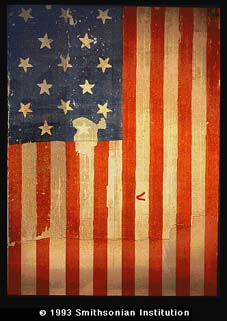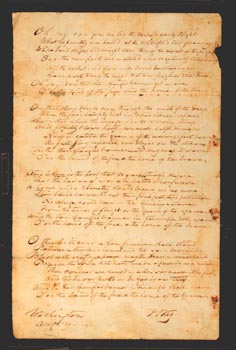

September 12, 2001
In between brief and terrifying updates, I listened to a cd I had burned for Cap'n Wiffle. (Cap'n Wiffle was formerly known as Aureng Zebe, and he actually changed his handle for reasons of political and moral sensitivity and not just to give me the good snicker it has in these difficult times.) That cd, typical of my creations, was packed with great songs and interesting artists, but one tune in particular kept grabbing me by the throat-"To Sir with Love" written by Don Black and Mark London, and sung by Lulu.
As an open-hearted tribute to a schoolteacher, "To Sir with Love" is an anomaly in pop (I'm not counting "Hot for Teacher" for a reason). Lyrically, the song flirts with teacher-student transgression; but while a schoolgirl crush is clearly in evidence, the singer knows that to pursue it would be to betray what she learned under his tutelage. "If you wanted the sky, I would write across the sky in letters/ That would soar a thousand feet high, 'To Sir, with Love.'" Who would have thought this would be the making of the 17th most popular song of the 1960s? Still, it's grand, it's generous, and…just so pretty.
If this were a normal September,
"To Sir with Love" would have a lock on Cobra Song of the Month, but my official
choice beat it by a nose. It isn't as different from Lulu's hit as you might
at first think. Both reflect hopefulness and security won at a critical hour,
and both are vested with a fresh daring and eagerness to aspire. But "The
Star Spangled Banner," written during an early crisis in US history, is the
one to hum as the flag flies over New York City, Washington, DC, and all over
the nation, and as it is desecrated in hostile precincts. And though only
the first verse is typically sung, please note that it is a cliffhanger-it
ends in a question mark. In its entirety, the song is revealed to be a drama
in four acts, full of meaty words like "gallantly," "ramparts," "dread," "vauntingly,"
and "heav'n-rescued"; and the last of these verses ends in a triumphal question
mark tempered by an all important "when." Sing it and see.
(Written by Sharon C. McGovern)

The Original
Star Spangled Banner
 The Text
of The Star Spangled Banner,Written by Frances Scott Key
The Text
of The Star Spangled Banner,Written by Frances Scott Key
O say,
can you see, by the dawn's early light,
What so proudly we hail'd at the twilight's last gleaming?
Whose broad stripes and bright stars, thro' the perilous fight,
O'er the ramparts we watch'd, were so gallantly streaming?
And the rockets' red glare, the bombs bursting in air,
Gave proof thro' the night that our flag was still there.
O say, does that star-spangled banner yet wave
O'er the land of the free and the home of the brave?
On the
shore dimly seen thro' the mists of the deep,
Where the foe's haughty host in dread silence reposes,
What is that which the breeze, o'er the towering steep,
As it fitfully blows, half conceals, half discloses?
Now it catches the gleam of the morning's first beam,
In full glory reflected, now shines on the stream:
'Tis the star-spangled banner: O, long may it wave
O'er the land of the free and the home of the brave!
And where
is that band who so vauntingly swore
That the havoc of war and the battle's confusion,
A home and a country should leave us no more?
Their blood has wash'd out their foul footsteps' pollution.
No refuge could save the hireling and slave
From the terror of flight or the gloom of the grave:
And the star-spangled banner in triumph doth wave
O'er the land of the free and the home of the brave.
O thus
be it ever when free-men shall stand
Between their lov'd home and the war's desolation;
Blest with vict'ry and peace, may the heav'n-rescued land
Praise the Pow'r that hath made and preserv'd us a nation!
Then conquer we must, when our cause it is just,
And this be our motto: "In God is our trust!"
And the star-spangled banner in triumph shall wave
O'er the land of the free and the home of the brave!